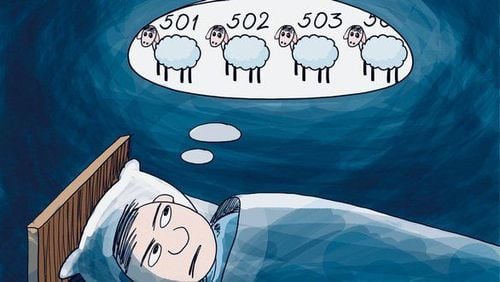This is an automatically translated article.
While getting enough sleep is the golden key to good health, a new study suggests that daytime naps may be linked to cardiovascular risks. Read the article below to understand the link between daytime sleepiness, prolonged naps and cardiovascular risk.
1. Daytime naps and cardiovascular risk
Researchers have found that naps and excessive daytime sleepiness are associated with an increased risk of developing a health problem known collectively as metabolic syndrome. That can increase your risk of heart disease and diabetes. Metabolic syndrome includes conditions such as high blood pressure, high cholesterol, high blood sugar, and excess fat around the waist.
The investigators analyzed the results of 21 studies involving a total of more than 307,000 people. The results of these studies have shown that people who nap for less than 40 minutes do not have an increased risk of metabolic syndrome. In fact, those who slept shorter than 30 minutes had a slightly reduced risk.
Meanwhile, the risk of metabolic syndrome including cardiovascular risk is significantly increased in people who nap for more than 40 minutes. Napping longer than 90 minutes increases the risk of metabolic syndrome by up to 50%, as well as causing excessive daytime sleepiness. The review also found that napping longer than 1 hour or frequently feeling overly tired during the day were both associated with a 50% higher risk of developing type 2 diabetes.
However, the study only found an association between these factors, but did not prove that excessive sleepiness and too long naps actually cause metabolic syndrome or diabetes. The findings were presented at the American College of Cardiology (ACC) meeting in Chicago.
Study author Dr. Tomohide Yamada, a diabetes researcher at the University of Tokyo, said in an ACC release: “Natural napping is widespread around the world, so that's why napping is so widespread. The need to elucidate the relationship between short sleep and metabolic diseases may provide a new therapeutic strategy, especially as metabolic disease is on the rise worldwide."
According to the US Centers for Disease Control and Prevention, about one-third of American adults do not get enough sleep. The National Sleep Foundation recommends a 20 to 30 minute nap to boost alertness.
As can be seen, sleep is an important component of our healthy lifestyle, as well as diet and exercise. Short naps can have beneficial effects on health.

Buồn ngủ ban ngày quá mức có liên quan đến việc tăng nguy cơ phát sinh các vấn đề sức khỏe
2. Measures to prevent daytime sleepiness
Most of us have times when we feel sleepy during the day. However, in some cases, excessive daytime sleepiness can interfere with work, family activities, and even entertainment needs. This can be a sign of insomnia that persists at night, leading to recurrent episodes of sleepiness, daytime naps, sometimes even while working.
It is not surprising that daytime sleepiness is related to the amount of rest each night. Even some people who just lose sleep or simply don't get enough sleep for a few nights can make the body sluggish or make the mood worse. To overcome the difficulties and consequences of daytime sleepiness, we can try to apply the following 12 ways to improve sleep every night.
2.1. Get enough sleep at night
This is an obvious one, but some people still manage to spend 1-2 hours of bedtime doing other things. The best sleep time for adults is between 7 and 9 hours, and teenagers usually need 9 hours of sleep every day. Therefore, no matter what, we should try to spend 8 or 9 hours a night to sleep and thereby limit daytime sleepiness.
2.2. Do not do other things in bed
A sleep medicine expert said that the bed should only be a place for sleeping and sex. We should not read books, watch TV, play video games or use laptops in bed. Also, do not work or have heated discussions in bed as they can lead to insomnia.
2.3. Set a fixed wake-up time
People with sleep problems are often advised to go to bed and wake up at the same time every day, including on weekends. However, setting an ideal bedtime can be difficult to do precisely if we have a sleep disorder (insomnia and difficulty falling asleep).
Instead, experts recommend starting by just setting a wake-up time. Stick with this routine for a while (weeks or even months) to establish a rhythm for your body. Getting in the habit of waking up at the same time will help maintain circadian rhythms. Still waking up on time after a long, sleepless night can make us more likely to fall asleep the next time we go to bed.

Ngủ đủ giấc vào ban đêm để hạn chế buồn ngủ ban ngày
2.4. Get into the habit of sleeping earlier
Another way to get on a fixed schedule is to try to go to bed 15 minutes earlier each night for 4 consecutive days. Then try to maintain the earliest bedtime. Just gradually adjusting the sleep schedule like this will be more effective than we suddenly go to bed 1 hour earlier.
2.5. Establish a consistent and healthy mealtime
Regular meal times not only help us have a regular sleep time, but also help regulate the body's circadian rhythm. Making a habit of eating healthy breakfast and lunch at the right time will prevent energy deficiency and reduce the risk of daytime sleepiness. In addition, people with sleep problems should try to finish their meals about 2 to 3 hours before going to bed.
2.6. Do exercise
Regular exercise (30 minutes a day) has many benefits for sleep. Exercise, especially aerobic exercise, often helps us fall asleep easier and sleep better.
Exercise is also a way to provide more daytime energy and keep your mind sharp. We should prioritize outdoor exercise because the benefits are often more. Sleep experts recommend 30 minutes of sunlight a day as this can help regulate the way we sleep.
2.7. Arrange a suitable work schedule
If we really can't sleep 7 or 8 hours a day, then we need to review our work schedule and make some adjustments. In it try to shift some activities from night to early evening, try to eliminate the things that are not really important. Getting enough sleep each night both helps us function better the next day and prevents daytime sleepiness.
2.8. Don't sleep when you're not really sleepy
Experts say the truth if we go to bed when the body feels too tired can make sleep incomplete. It is important to distinguish between feeling sleepy and tired. You should only climb into bed when your eyes droop, feel drowsy, or feel like you're dozing off.
2.9. Limit napping too late
Naps that are too late can make daytime sleepiness worse because it is a predisposing factor, interfering with sleep at night.
2.10. Relax before going to bed
The habit of relaxing before bed can help separate us from the activities of the day, especially those that are too stimulating or stressful to make it difficult to sleep. You can meditate, soak in a warm bath, listen to soothing music or read a book. Also, sipping a cup of herbal tea or warm milk can also calm the mind, but ignore them if they keep you up at night to go to the bathroom.

Tập thể dục thường xuyên (30 phút mỗi ngày) mang lại nhiều lợi ích cho giấc ngủ
2.11. Avoid alcohol
Many people think that alcohol helps to sleep well, but in reality it robs you of deep sleep and this prevents you from getting enough rest. When the effects of alcohol wear off in the middle of the night, you may wake up again and have a harder time falling asleep.
2.12. Talk to a sleep specialist
The problem of falling asleep at the wrong time can also be the result of certain diseases or the effects of drugs. In addition, some neuropsychiatric conditions such as depression, post-traumatic stress disorder, and anxiety have been linked to sleep problems.
A sleep specialist can design an appropriate program to treat the underlying sleep disorder and help the person develop better sleep habits and attitudes through cognitive behavioral therapy. Sometimes a combination of medication and behavioral therapy can be used to eliminate daytime sleepiness.
Please dial HOTLINE for more information or register for an appointment HERE. Download MyVinmec app to make appointments faster and to manage your bookings easily.
Reference source: webmd













